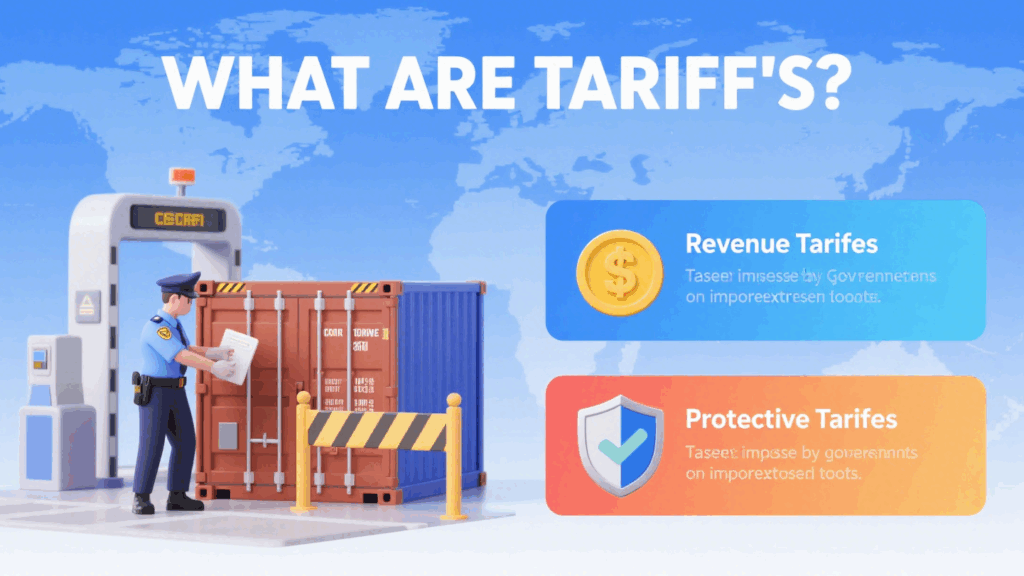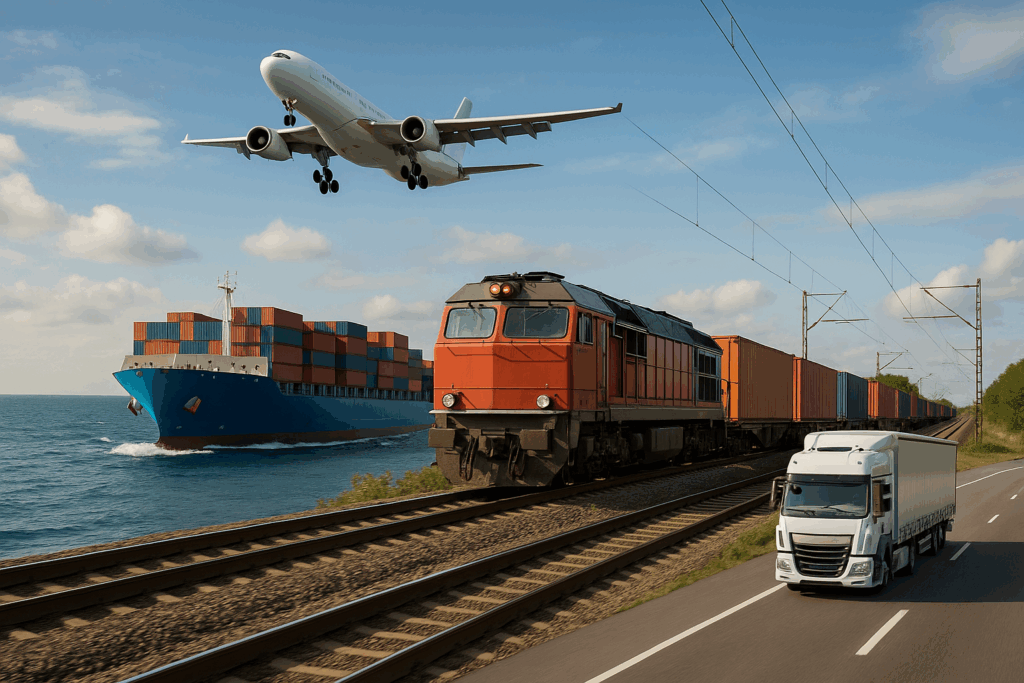If you are asking when do the tariffs start 2025, you’re not alone. Businesses worldwide are adjusting supply chains as the year brings a three-phase tariff implementation that will directly impact import/export costs.
With changes beginning in January 2025, importers may choose faster transport methods to beat deadlines, while exporters might re-strategize shipping to minimize duty costs. This guide covers dates, shipping timelines, customs compliance, and trade strategies to help you stay ahead.
1. Official Tariff Start Dates in 2025
Tariff adjustments will occur in three distinct phases:
1⃣️January 1, 2025: First wave, affecting priority-listed goods such as electronics, certain raw materials, and machinery.
2⃣️May 1, 2025: Expansion to intermediate goods, chemicals, and semi-finished products.
3⃣️September 1, 2025: Final adjustment including selected consumer goods and luxury items.
📌 Note: These dates apply at customs clearance, not at shipment departure — another reason to track exactly when do the tariffs start 2025 for your product category.
2. How the Tariffs Affect Global Supply Chains
Tariffs influence:
- Freight Booking Patterns – Increased bookings before tariff deadlines.
- Shipping Mode Selection – More air freight and express rail bookings to meet clearance cut-offs.
- Contract Renegotiations – Importers seek fixed-rate freight contracts before tariffs apply.
📍For example, a shipment from Shanghai to Los Angeles by sea departing December 10, 2024 and arriving January 5, 2025 would be subject to Phase 1 tariffs unless cleared before Jan 1.
3. Shipping Time, Conditions & Tariff Phases
| Tariff Phase | Effective Date | Common Shipping Method | Avg. Transit Time | Recommended Action |
|---|---|---|---|---|
| Phase 1 | Jan 1, 2025 | Sea Freight (FCL/LCL) | 20–35 days | Ship by Nov–Dec 2024 to avoid tariffs |
| Phase 2 | May 1, 2025 | Air Freight | 5–10 days | Book by mid-April 2025 |
| Phase 3 | Sep 1, 2025 | Rail & Express Cargo | 12–20 days | Arrange customs clearance in August |
4. Pre-Tariff Shipping Strategies
- Advance Booking – Reserve freight space early to avoid last-minute price surges.
- Mode Switching – Shift from sea to air or rail when approaching tariff deadlines.
- Split Shipments – Divide orders to ensure part arrives before tariffs start.
- Leverage FTZs (Free Trade Zones) – Store goods duty-free until tariffs ease.
- Coordinate with Freight Forwarders – Get accurate ETAs and clearance advice.

5. Customs Compliance Essentials
- Ensure HS Codes are accurate to avoid misclassification penalties.
- Use digital customs filing for faster processing.
- Keep invoices, packing lists, and certificates ready for inspection.
- Track your shipment in real-time to monitor clearance progress.
6. Cost Management Under Tariffs
- Consolidation Shipping: Reduce per-unit freight costs by grouping cargo.
- Bonded Warehousing: Hold goods until tariff changes favor you.
- Alternative Sourcing: Consider suppliers in tariff-free regions.
- Tariff Engineering: Modify product design or assembly to shift classification.
7. Transportation Mode Comparison Under Tariff Deadlines
| Mode | Speed | Cost Level | Best Use Case Under Tariff Deadlines |
|---|---|---|---|
| Air Freight | ★★★★★ | $$$$$ | Urgent shipments before deadline |
| Rail Freight | ★★★★☆ | $$$ | Medium-speed, tariff deadline buffer |
| Sea Freight | ★★☆☆☆ | $ | Cost-effective, but plan months ahead |

8. Real-World Example – Beating the Tariff Clock
A clothing retailer in Europe importing from China:
- Moved last Q4 shipments via express rail instead of sea.
- Cleared customs two weeks early, saving $85,000 in duties.
- Used bonded warehousing to delay final clearance for non-urgent goods.
9. Conclusion – Plan Early, Ship Smart
Understanding when do the tariffs start 2025 is more than knowing dates—it’s about aligning logistics, customs, and sourcing to minimize costs. With proactive planning, you can avoid last-minute freight rate spikes, meet clearance deadlines, and keep your profit margins intact.
Request a Quote
Need a tailored solution for your shipping from China?
Let TJ China Freight Forwarder assist you with reliable, cost-effective service.
FAQ:
Q1.How do I check my product’s tariff rate?
Search by HS code in your country’s customs database.
Q2. Do tariffs apply to in-transit goods?
Yes, if they clear customs after the effective date.
Q3.Are all products affected in each phase?
No, each phase targets specific goods per government announcements.
Q4.What happens if my shipment is delayed past the tariff date?
You’ll likely pay the updated duty unless exemptions apply.
Q5.Can I split shipments to minimize tariff impact?
Yes, many companies ship urgent goods early and delay non-essentials.
